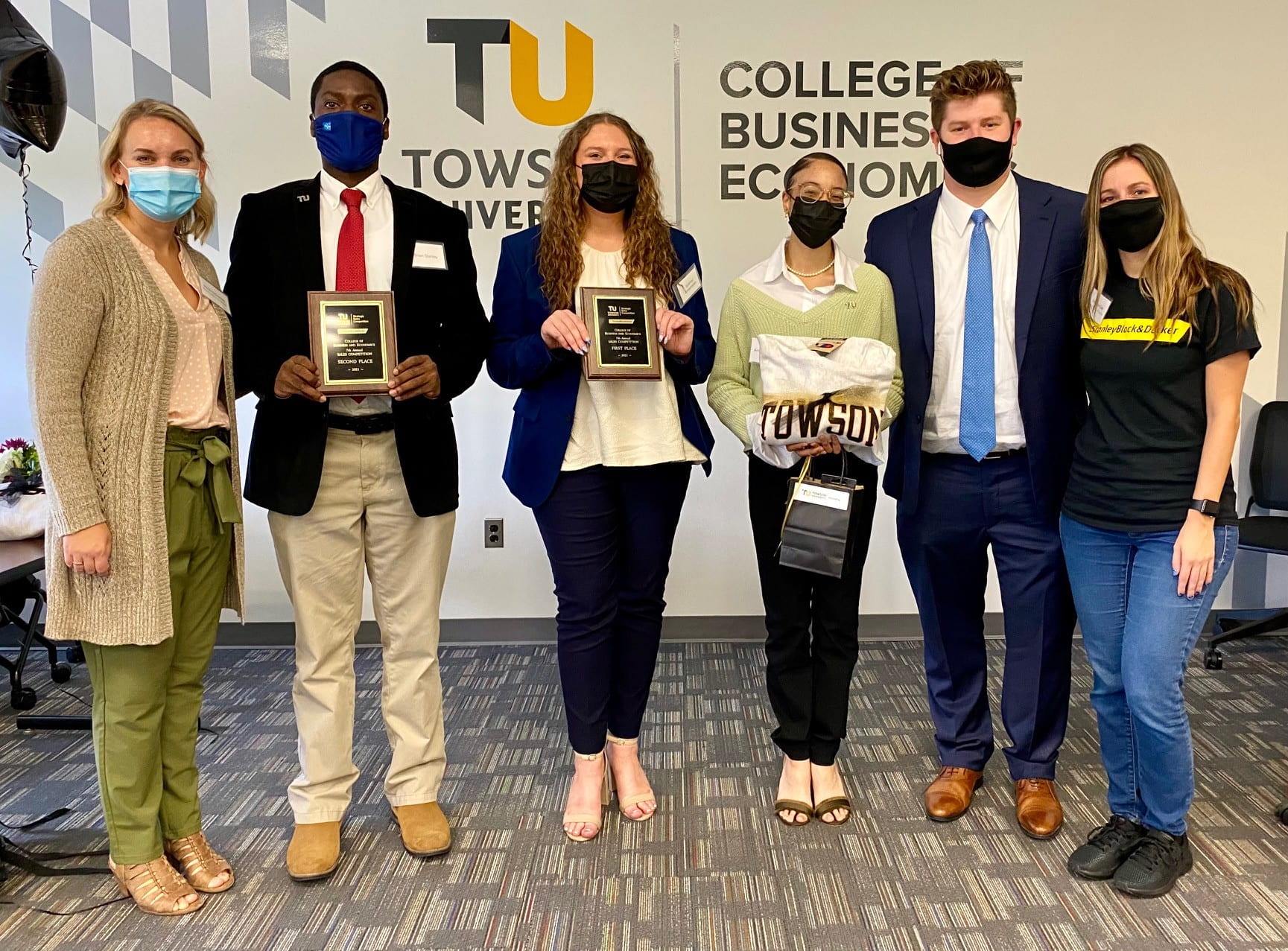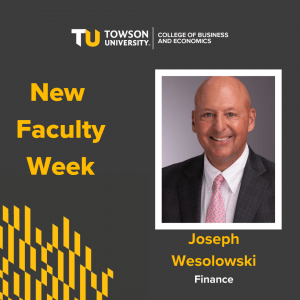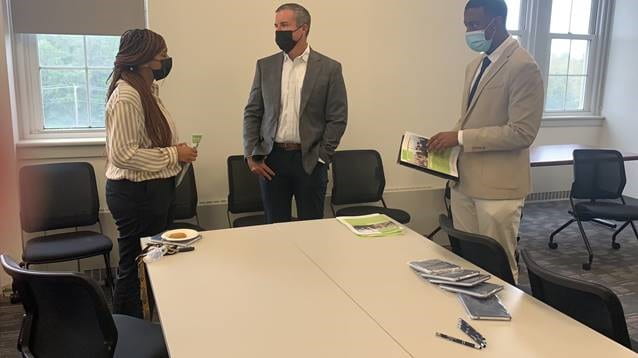On October 22, 40 students and 37 business professionals returned to campus for the 7th Annual Strategic Sales Competition.
Representatives from Stanley Black and Decker (SBD), Northwestern Mutual, Sherwin Williams, Graybar, Enterprise Holdings, Lower, United Electric Supply, ADP, United Rentals, Pella Mid-Atlantic, Stryker Endoscopy, WMAR – Channel 2, UNUM, Concentra, Triumvirate Environmental, and MemoryBlue served as buyers or judges for the competition.
Among them were several alumni, including Joe Richardson ‘98 (SBD), Grayson Osborn ‘19 (SBD), Chris Wohlfort ‘16 (Lower), Vlad Shevchenko ‘17 (Stryker), Patrick Hoover ‘13 (Pella), Alicia Jones, ‘18 (Gauge Media), Hailey Hardesty ‘19 (Enterprise), and Jenny Fitzsimmons ‘15 (Enterprise).
This unique competition puts theory into practice by simulating a real-life sales scenario whereby students are challenged to sell an actual product to industry professionals who serve as buyers. As platinum partner, Stanley Black and Decker provided the product (DeWalt FlexVolt), for this semester’s competition.
To add authenticity, one-on-one sales pitches take place in real-time and are simultaneously live-streamed to another room where judges evaluate the students’ performance, such as their delivery, tactics, and ability to address the buyers’ concerns.
Five winners were ultimately selected by the judges:
- Sydney Greenspan, Business Administration – Marketing
- Brian Stanley, Business Administration – International Business
- Massimo Artista, Mass Communication – Advertising
- Amaya Blanding, Acting
- Michael Caulfield, Business Administration – Marketing
The winning students, representing various majors across CBE and TU, received a total of $5,000 in scholarships. First place winner, Sydney Greenspan, will go on to represent TU at the Shore Sales Challenge – a nationwide competition at Salisbury University in March.
Plamen Peev, associate professor of marketing and organizer of the competition extends “Special thanks to Sarah Halvorsen (SBD) for working tirelessly on organizing the Stanley team and training the students on the product. A shout out to all the buyers for the day: Brad Palmatary, Grayson Osborn, Ryan Filyo, Cole Ostendarp, and Jake Jennings (all from SBD).”







